It’s easy to forget that barely more than a century has passed since Orville and Wilbur Wright flew the first successful airplane in Kitty Hawk, North Carolina.
The intervening 115 years has produced enough artifacts and knowledge to fill dedicated museums around the world.
The greatest aviation museums capture the achievements and products of the pilots, designers and engineers who completed those rickety first flights then set their sights on space while we were just trying to ignore the guy clipping his toenails in seat 17B.
Thankfully, there’s no need to fasten your seat belt, shut off phones or worry about turbulence and legroom to enjoy the world’s best aviation museums.
Just enjoy the ride.
Wings Over the Rockies Air and Space Museum, Denver, Colorado
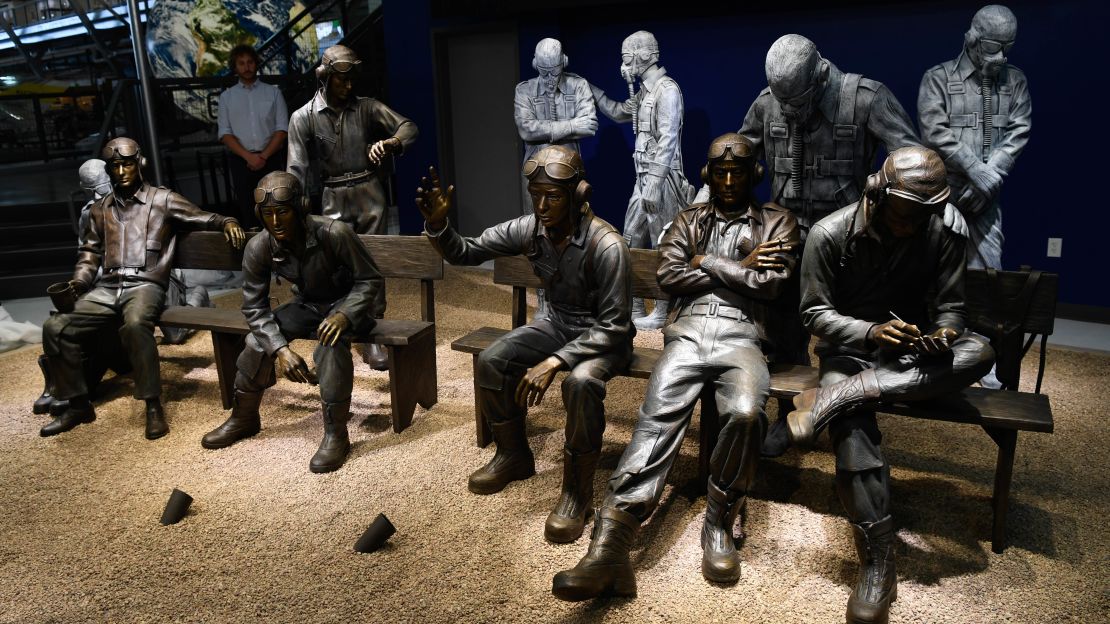
With 182,000 square feet of exhibits on the grounds of the former Lowry Air Force base, Denver’s Wings Over the Rockies Air and Space Museum has enough to command more than a few hours of anyone’s time.
Among exhibits that span the history of aviation in the United States is one automotive surprise: The museum houses the “Spirit of America – Sonic Arrow,” adventurer Steve Fossett’s jet engine-powered car, which reached a speed of 675 mph in 1996.
A satellite museum, the Boeing Blue Sky Aviation Gallery, sits at Denver’s Centennial Airport and allows visitors up-close inspections of historic aircraft, including a 1942 Douglas DC-3 and a 1936 Stearman biplane.
“It’s a fun museum and mostly caters to military aviation, but there’s an excellent collection of commercial aircraft models and space exhibits,” says aerospace blogger Isaac Alexander.
“Pro tip: check the events calendar for special experiences, like cockpit demos and exclusive lectures,” notes Jillian Smith, a Denver realtor.
Wings Over the Rockies, 7711 East Academy Blvd., Denver, Colorado, 80230; +1 303 360 5360
Museo del Aire, Madrid, Spain
Cuatro Vientos Airport outside Madrid is home to more than just Spain’s oldest airport; it also hosts the Museo de Aeronáutica y Astronáutica, popularly called the Museo del Aire.
Six galleries and an outdoor area contain nearly 200 aircraft that tell the story of Spain’s aviation history and its own domestic aircraft production, ranging from the 1910-built Vilanova Acedo to modern Spanish Air Force fighter jets.
Exhibits go beyond aircraft to showcase other military technology and weaponry developed alongside the aircraft industry, such as missiles and torpedoes.
Museo del Aire, A-5, Km. 10,7, 28024 Madrid, Spain; +34 915 091690
Carolinas Aviation Museum, Charlotte, North Carolina
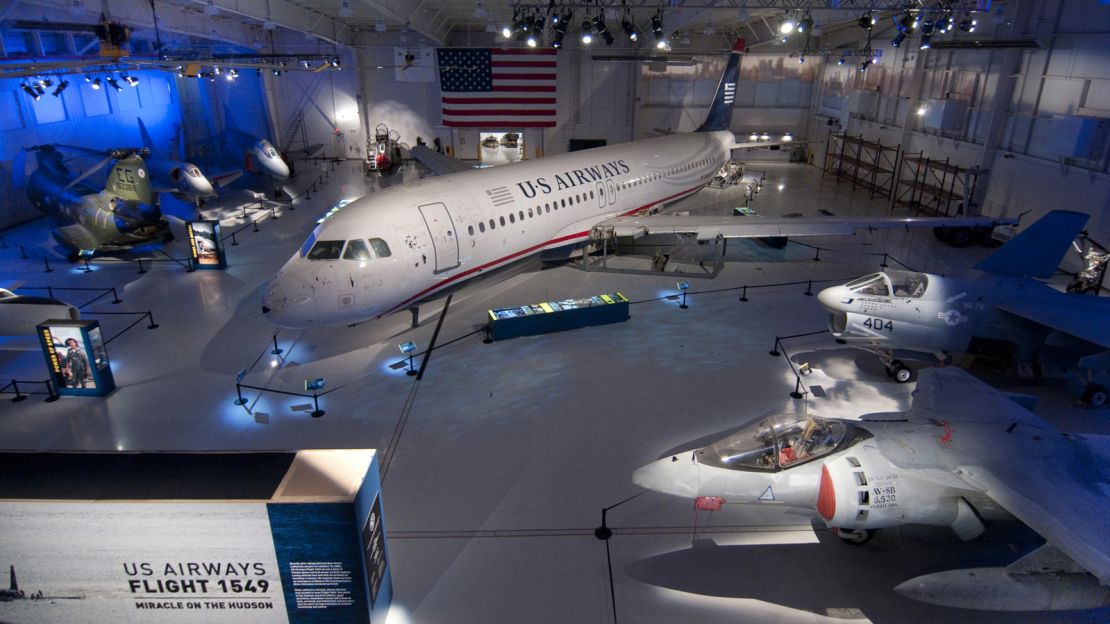
January 2019 marks the 10th anniversary of the “Miracle on the Hudson,” when US Airways Flight 1549 lost both engines following bird strikes and was forced to ditch into the Hudson River, with no loss of life.
Following the retrieval and investigation, the Airbus A320 found a home at the Carolinas Aviation Museum as part of a permanent exhibit on the extraordinary event.
Although the Carolinas Aviation Museum is relatively small compared to others in this list, with only around 50 aircraft on static display, its location on the grounds of Charlotte Douglas International Airport makes it convenient for travelers on lengthy layovers.
Carolinas Aviation Museum, 4672 1st Flight Dr, Charlotte, NC 28208; +1 704 997 3770
Palm Springs Air Museum, Palm Springs, California
Palm Springs Air Museum is small, but that’s a good thing. It’s one of the few where you can climb inside the exhibits, talk to a pilot or enjoy a biplane ride.
“We love to bring in temporary exhibits – our fleet of aircraft are not static, and there are no ropes to prevent visitors from getting up close,” says managing director Fred Bell.
“Our 8,700-volume library consists of first-person narratives, including an 800-volume collection of books devoted to the China-Burma-India Theater of Operations during World War II.
“We are a living history museum, and it’s not uncommon for visitors to speak to someone who flew one of our aircraft in either Korea or Vietnam.”
Palm Springs Air Museum, 745 N. Gene Autry Trail, Palm Springs, California; +1 760 778 6262
Central Air Force Museum, Monino, Russia
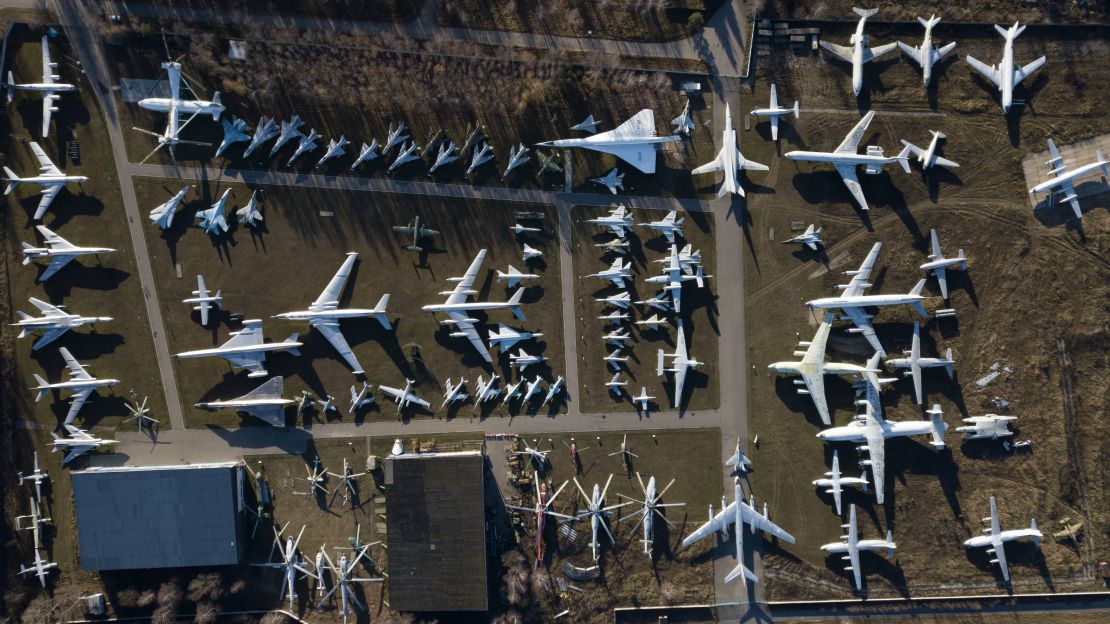
A shrine to Cold War aviation, this museum 24 miles outside of Moscow is considered Russia’s best.
“The whole thing does have a unique charm that is rather difficult to quantify,” says aviation author and researcher Andy Saunders.
Outdoor exhibits at the once operational air base showcase Russian jets from the 1960s and ’70s. There are military Mikoyans (MiGs), Tu-142 bombers, Tu-22 bombers and a Tu-144 supersonic passenger plane.
The flight uniform Francis Gary Powers wore when his U-2 spy plane was shot down over the Soviet Union during a reconnaissance mission is on display.
Retired air force officers, who have stories and personal anecdotes to share, guide the museum tours.
Central Museum of the Air Forces, Monino, Russia; +7 495 681-63-03
Royal Flying Doctor Service Museum, Alice Springs, Australia
The Royal Flying Doctor Service museum is housed inside what was once the organization’s radio house.
Visitors can peer inside a Pilatus PC-12, the aircraft used by the service. There’s also a display of historic radios and medical equipment.
In the 70-seat theater, visitors hear amazing stories of survival from those who’ve been visited by the flying doctors.
“The service was founded by a minister, Reverend John Flynn, in 1928,” says museum manager Andrew Rutter.
“Reverend Flynn envisaged a ‘mantle of safety’ that provided healthcare to Australians, wherever they lived. The story began with a de Havilland DH50 leased in 1928 from the then fledgling Queensland and Northern Territory Aerial Service, which later became Qantas.”
Royal Flying Doctor Service museum, Alice Springs, Australia; +61 (0)8 8958 8411
Red Bull Hangar-7, Salzburg, Austria
Owned by Red Bull founder and billionaire Dietrich Mateschitz, Red Bull Hangar-7 is one of the world’s most beautiful aviation museums.
The main building – made from 1,200 tons of steel and 380 tons of glass – contains Red Bull’s fleet of Flying Bull stunt planes, a rare Cessna C337, a Boeing PT-17 (known as the Harley Davidson of the sky) and three 1,000-kilometer-per-hour Alpha jets, which were purchased by Red Bull’s stunt team from the German air force.
It also has collections of F1 cars, motorbikes and plants.
Between the speed machines, visitors can spot some of the world’s rarest greenery, including swamp date palms from Indochina, mulberry weeping figs and Japanese Kusamaki trees.
Red Bull Hangar-7, Wilhelm-Spazier-Stra?e 7a, 5020 Salzburg, Austria; +43 662 2197
Canada Aviation and Space Museum, Ottawa, Canada
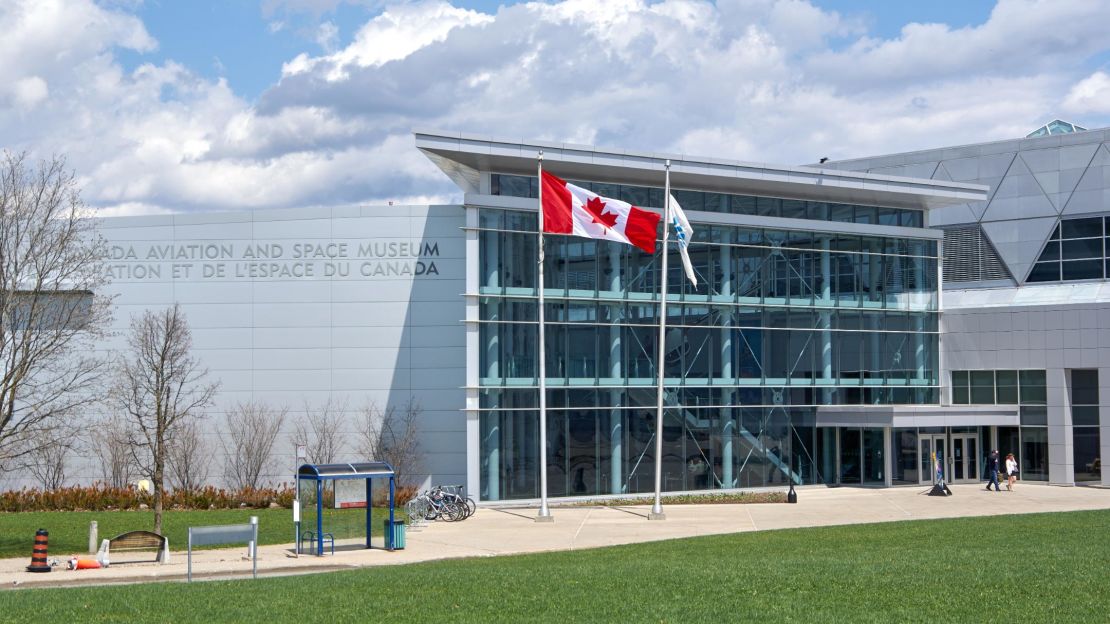
Home to more than 130 aircraft from around the world, highlights here include the nose section of an Avro Canada CF-105 Arrow (one of few remaining parts of the Canadian-built fighter jet) and a flight simulator.
In summer, visitors can take short flights in a 1939 Waco UPF-7 biplane.
“Our collection features original aircraft as opposed to reproduced versions,” points out Stephen Quick, the museum’s director general.
“Only in Ottawa can you see Professor Junker’s first all-metal aircraft from 1917, an HS2L flying boat resurrected from Canada’s lakes and the prototype de Havilland Canada Beaver.”
Canada Aviation and Space Museum, 11 Aviation Parkway, Ottawa; +1 613 993 2010
China Aviation Museum, Beijing, China
More than 200 aircraft are collected at China’s flagship aviation museum, including Chinese fighter jets, a replica of the “Wright Flyer” and the plane that was once Chairman Mao Zedong’s personal transport.
The setting is spectacular – part of the museum is housed within a cave that was originally part of the underground bunker system of China’s Shahe airbase.
“There are some truly extraordinary aircraft – ones you just cannot and do not see in the West,” says aviation expert Michael Blank.
“My favorite exhibits are the ‘prop liners’ – old propeller-driven airliners, like the Ilyushin 18s.”
China Aviation Museum, Changping, Beijing; +86 10 6178 4882

Oleg Antonov State Aviation Museum, Kiev, Ukraine
This museum, operated by Ukraine’s National Aviation University, houses one of the world’s biggest displays of aviation technology.
The majority of the aircraft are ones built by the Soviet Union and exhibits include supersonic bomber planes, transport planes and nuclear missile carriers.
One of the most impressive exhibits is the Tupolev-104.
“On September 15, 1956, a very important event for civil aviation occurred,” explains Professor Felix Yanovsky, head of electronics at the National Aviation University.
“The world’s first jet airliner, the Tupolev-104, made its first passenger flight between Moscow and Irkutsk. This plane is now in the State Aviation Museum of Ukraine, and it’s the oldest surviving aircraft of this type.”
Oleg Antonovo State Aviation Museum, Zhulyany Airport in Kiev, Ukraine; +380 451 83 24
Polish Aviation Museum, Krakow, Poland
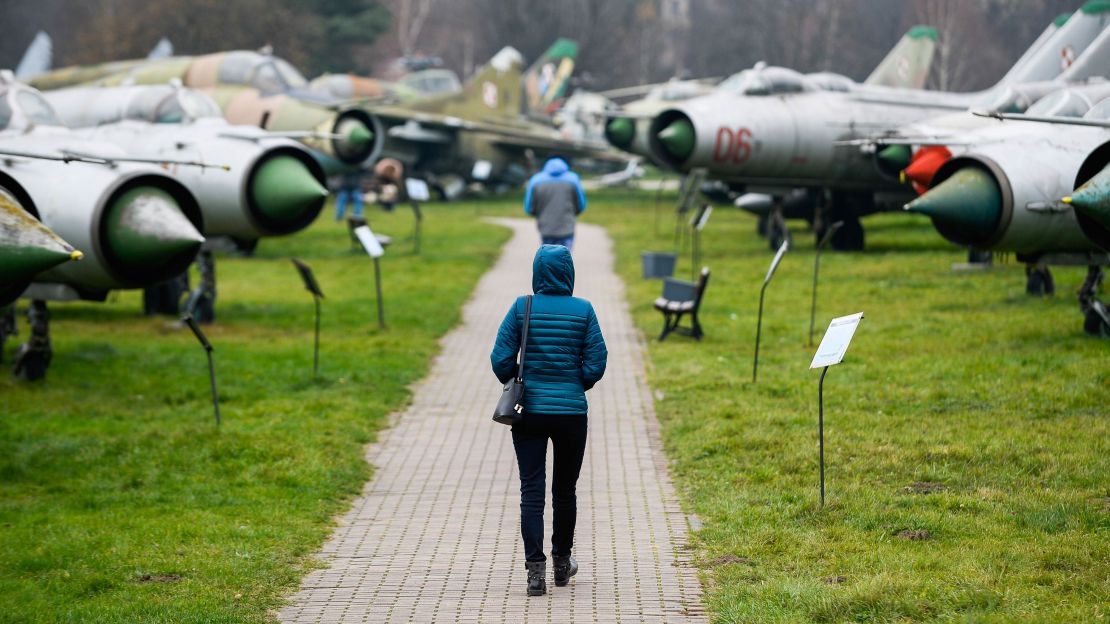
Communist-era aircraft dominate here. Everywhere you look outside the Krakow museum there’s a string of Soviet-era, Cold War jets.
Inside you’ll find well-conserved displays of accompanying memorabilia. The museum has a huge collection of aircraft.
“It houses a remarkable display of un-restored, pre-World War I aircraft still in the tattered state in which they were rediscovered in Poland at the end of World War II, having been spirited away from the great Deutsche Luftfahrtsammlung in Berlin to save them from Allied bombing,” says Michael Oakey, managing editor at The Aviation Historian.
The museum is located on Rakowice-Czy?ny, one of the oldest military airfields in Europe; the airfield played a part in defending the Krakow Fortress during World War I.
The base served as a pilot school during the 1920 Polish-Soviet War and by the late 1920s it had become the second largest air base in Poland.
“It’s one for the connoisseur, with a time-capsule of untouched pre-World War I aircraft, plus a rare example (from the 1970s) of the world’s only production jet-powered biplane,” says Oakey of the PZL M-15 Belphegor.
Polish Aviation Museum, 31-864 Kraków, al. Jana Paw?a II 39
EAA Museum, Oshkosh, Wisconsin
The EAA Museum is around 200 aircraft and more than 20,000 aviation artifacts in a collection of hangars on the grounds of the EAA (Experimental Aircraft Association) and Wittman Regional Airport in central Wisconsin.
It’s unique from other aviation museums in that large sections focus on home-built and experimental aircraft, as well as air racing and competition flying.
In the summer, the EAA hosts a week-long mega-airshow, EAA AirVenture, that brings together some 10,000 aircraft and more than half a million visitors to celebrate aviation.
“You might want to spend one or two full days taking it all in, as walking around the EAA Museum for just a few hours is barely scratching the surface of the available information and knowledge each exhibit has to offer,” says Jessica Voruda, private pilot and Director of Marketing at Propellerhead Aviation.
“My favorite exhibit right now is CAF [Commemorative Air Force] loan of a collection of original World War II nose art, as it’s really powerful knowing that each of these aircraft were lucky enough to make it through the wars while many others were lost along with the lives of those who piloted them.”
EAA Museum, 3000 Poberezny Road, Oshkosh, Wisconsin, 54902; +1 920 426 4800
Aerospace Bristol, Bristol, UK
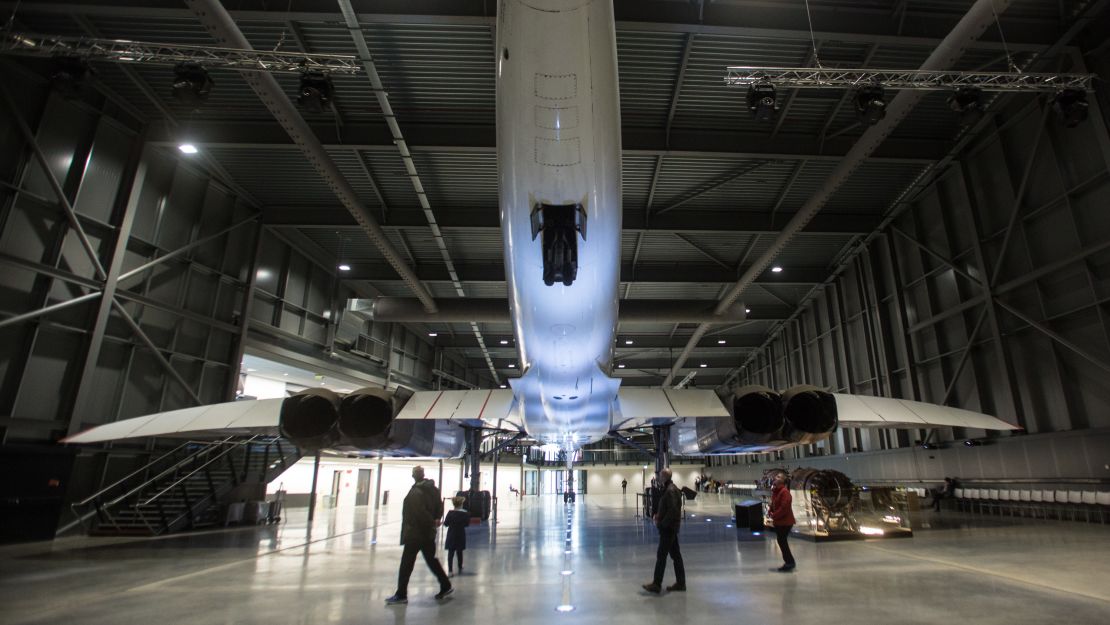
Aerospace Bristol is the newest aviation museum outside the United States, having only opened in October 2017, but the history of the site on Filton Airfield stretches back to the founding of the British and Colonial Aeroplane Company here in 1910.
The decades saw many aircraft types developed and manufactured here, including Bristol Fighters in World War I and the Bristol Blenheim, Beaufort, Beaufighter and Brigand during World War II. A Concorde was kept here by British Airways for maintenance use, and that history is celebrated by the museum today.
Aerospace Bristol’s collection includes more than 8,000 artifacts, but the most photographed is Alpha Foxtrot, the last Concorde to be built and the last to fly.
“That brand new aviation museum smell still mixes with the perfume of propeller grease at Aerospace Bristol, intoxicating visitors already in thrall to the fascinating story of one of the UK’s original aircraft production sites,” says CNN Travel’s Global Editor, Barry Neild.
“The big reveal at the end – the beautifully preserved last-ever Concorde to fly – is made even more special by the fact there’s a good chance of bumping into someone who actually built or flew in her, enjoying a day out to visit their old friend.”
Aerospace Bristol, Bristol UK; +44 01179 315 315
Delta Flight Museum, Atlanta, GA
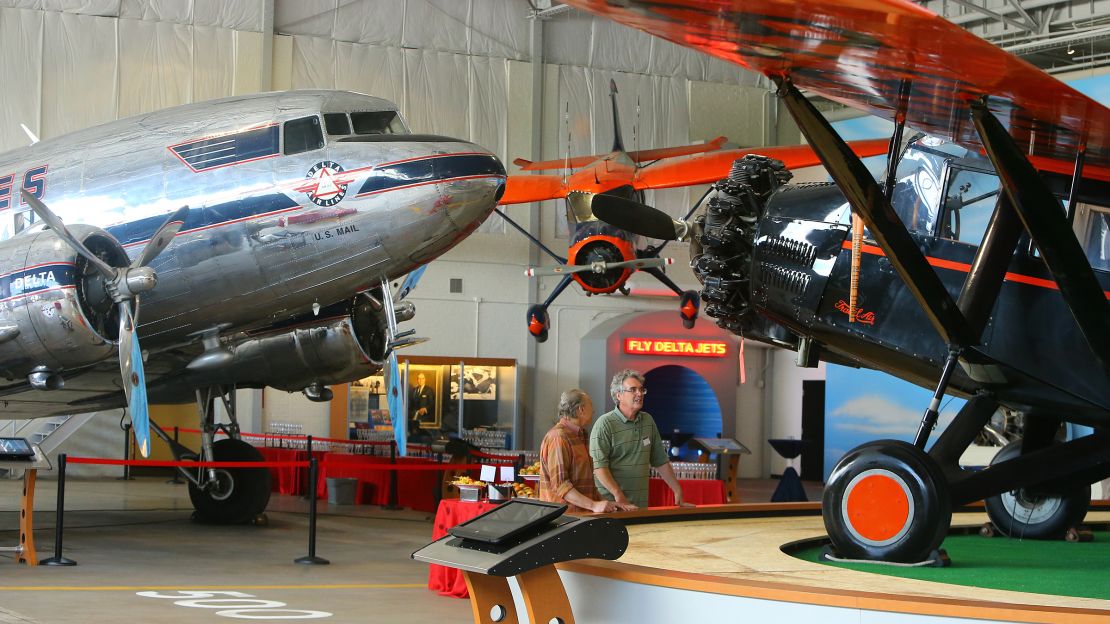
Visitors arrive to the Delta Flight Museum by driving between a Boeing 747 and a 757, two of the many full-size aircraft on display at the Delta Flight Museum.
Those drove here, too; the museum is next to Atlanta’s Hartsfield-Jackson International Airport and is an ideal long layover diversion for travelers not content to pass the hours thumbing through magazines at a Hudson News.
Reopening in 2014 after a $12 million renovation, the Delta Flight Museum is two World War II-era hangars chock full of exhibits on the airline’s history as well as of those it’s taken over through the years, including Pan Am and Northwest.
The centerpiece of the collection is “The Spirit of Delta,” a 767-200 bought for Delta by its employees (yes, really), after they raised $30 million in the early 1980s to help keep the airline on its feet in tough times. The 767 is a museum within a museum, as its interior has been restored and arranged to showcase flight attendant uniforms and onboard service items through the decades.
The museum also features the only full-motion simulator open to the public (a 737-200).
“The museum focuses heavily on Delta history, but it is more than just Delta on display,” says Seth Miller, aviation industry consultant at PaxEx.Aero.
“Aircraft spanning decades of history and the evolution of the in-flight experience are also highlights.”
Delta Flight Museum, 1060 Delta Blvd., Building B, Atlanta, Georgia, 30354; +1 404 715 7886
Pima Air & Space Museum, Tucson, AZ
Pima Air & Space Museum is the largest non-government funded aviation museum in the United States.
Exhibits include the SR-71 Blackbird (the world’s fastest spy plane), a B-29 Superfortress and the world’s smallest biplane.
In one area, retired DC-3 aircraft double as canvases for Brazilian graffiti artist Nunca.
One of the most popular attractions is the Boneyard, otherwise known as the place planes go to die. There’s a boneyard on the grounds of the museum as well as a large military boneyard accessible via the museum-organized daily bus tours.
The 309th Aerospace Maintenance and Regeneration Group (to give the area its correct name) covers 2,600 acres (or 1,430 soccer pitches) and contains the rusting hulks of 4,000 retired aircraft.
Pima Air & Space Museum, 6000 E. Valencia Road, Tucson, Arizona; +1 520 574 0462
Museum of Air and Space, Le Bourget, France
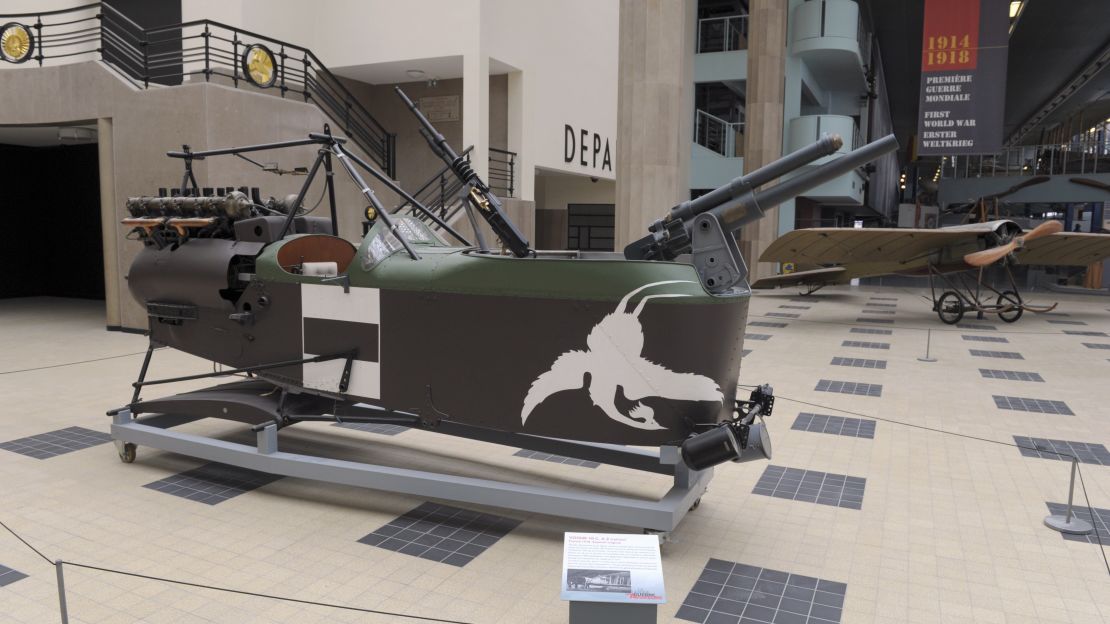
It covers 1.6 million square feet and contains 19,595 exhibits – some of which date to the 16th century, and includes rarities like the only known remaining piece of the L’Oiseau Blanc. This aircraft was used by Charles Nungesser and Fran?ois Coli in their attempt to make the first transatlantic crossing from Paris to New York in 1927, two weeks before Charles Lindbergh’s successful flight in the opposite direction.
They took off from Paris, but were never seen again. This museum is the only place you can see two Concordes side by side.
“The highlight is the Concordes,” says Graham Braithwaite, an aviation professor at the UK’s Cranfield University.
“They’re a reminder of the technical achievement that united the British and French.
“It’s poignant to see them so close to where the Air France Concorde crashed with the loss of all on board – the beginning of the end for this remarkable aircraft.”
Museum of Air and Space, Le Bourget, Paris; +33 1 49 92 70 00
The Museum of Flight, Seattle, WA
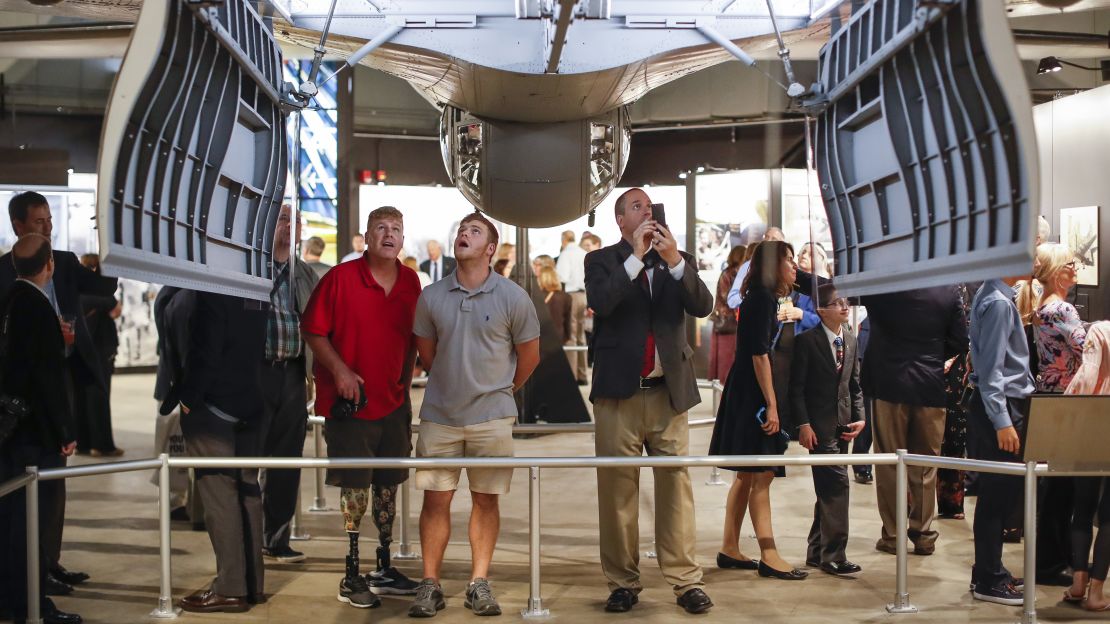
The Museum of Flight is the world’s largest independent, non-profit air and space museum, conveniently situated on the grounds of King County International Airport, also known as Boeing Field.
Specialized tours allow for in-depth experiences centered around individual aircraft, like the Lockheed M-21 Blackbird, or go behind the scenes at the active airport just outside the museum’s doors.
A new pavilion opened in 2016, showcasing some of the first of Boeing’s most successful commercial jet aircraft, as well as the first jet Air Force One, the only Concorde on the West Coast, a B-17F Flying Fortress and B-29 Superfortress, the Cold War’s B-47 Stratojet, and jet fighters spanning the wars from Korea to the Persian Gulf.
“My favorite part of the Museum of Flight is the is air park, where you can tour the inside of a Concorde, the first 747 jumbo jet, a presidential 707, and one of the first 787 Dreamliners,” says David Parker Brown, editor-in-chief of aviation website AirlineReporter.com.
“There is nowhere else in the world that you can do that!”
The Museum of Flight; 9404 E. Marginal Way, Seattle, Washington; +1 206 764 5700
National Museum of the US Air Force, Dayton, OH
The world’s oldest and largest military aviation museum, the display at Wright-Patterson Air Force Base in Ohio, is huge, but well ordered.
“Its sheer scale is extraordinary – it has about 17 acres of indoor display space, spread across several hangars and other buildings; and further outdoor display space for some of its larger aircraft,” says Michael Oakey, managing editor at The Aviation Historian.
“You need at least a couple of days to get around it all.”
The museum’s lighting and exhibit presentation are extraordinary. Exhibit galleries are divided by era.
In the early years, a SPAD XIII and Caproni CA 36 bomber are on display.
In the World War II gallery, there’s the B-17F “Memphis Belle,” the first US Army heavy bomber to complete 25 missions over Europe and return stateside with its crew intact. It was the inspiration for the 1990 film of the same name.
The keystone of the museum’s presidential gallery is the Boeing VC-137C. Known as SAM (Special Air Mission) 26000, it was the aircraft serving as Air Force One the day president John F. Kennedy was shot.
National Museum of the USAF, 1100 Spaatz St., Wright-Patterson AFB, Ohio (near Dayton)
Imperial War Museum Duxford, Duxford, UK
Once a British Royal Air Force station, the museum at Duxford is particularly noteworthy for its world-leading collection of WWII planes.
“The thing that makes this place is, firstly, atmosphere; an original WWI and WWII military airfield that is now a living museum,” says aviation author and researcher Andy Saunders.
“The fact that Spitfires, Me 109s, B-17s and P-51 aircraft can regularly be seen flying here (and not just during air display days) makes this place the ultimate museum of its genre.”
Duxford’s aerodrome has played many roles. It was a site for training Royal Flying Corps in 1917. Later it became a base for squadron disbandment and then a fighter station in 1924.
It’s home to Spitfires, a Lancaster bomber and a Concorde and visitors can get a close look at how aircraft like these are restored through the Conservation in Action program.
“You can watch as what are often ruined hulks are restored to apparently immaculate examples of aircraft – some of which are the only ones in existence,” says professor Graham Braithwaite of Cranfield University.
The summer season air shows at Duxford are arguably the best in the world, with zippy, acrobatic displays from iconic aircraft.
Imperial War Museum, Duxford, Cambridge; +44 1223 835000
Smithsonian National Air and Space Museum and Udvar-Hazy Center, Washington, D.C. and Chantilly, VA
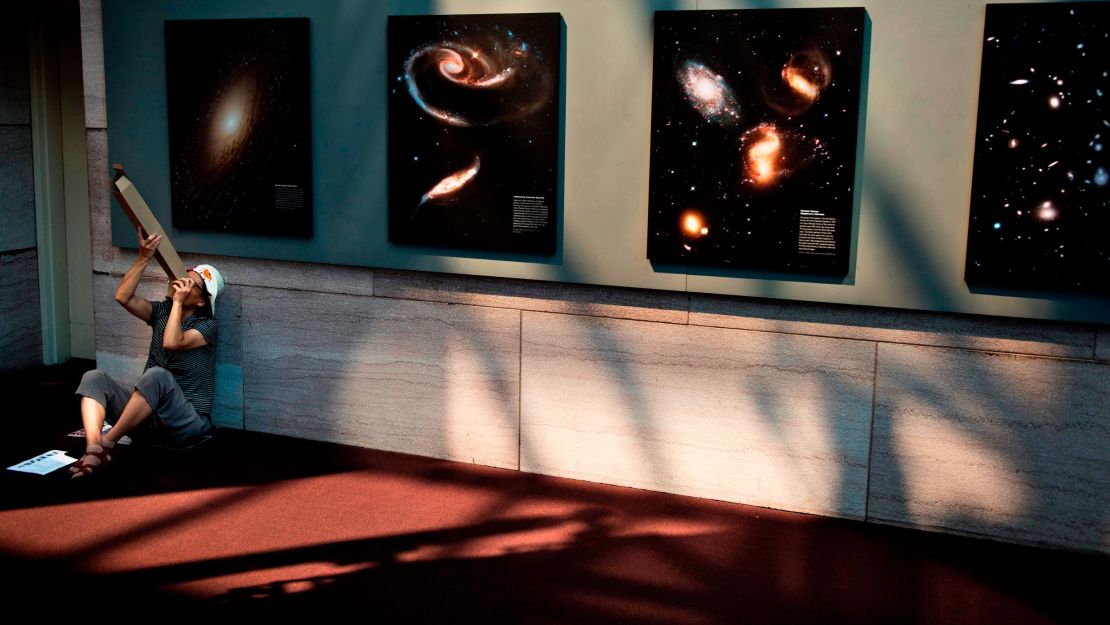
It’s the sheer number of aircraft and artifacts that make this Washington, D.C., museum beloved by both the aviation-obsessed and the marginally curious.
“It’s a museum that seems to have life and soul and I would challenge anyone with an inquiring mind, whether aviation enthusiast or not, not to find something here that engages and interests them,” says aviation author and researcher Andy Saunders.
Eight million people every year visit the 60,000 exhibits and a public archive of more than 1.75 million photographs and 14,000 videos detailing aviation and space.
It has the world’s first airplane, the “Wright Flyer” that made its debut flight at Kitty Hawk in 1903, front and center in an exhibit dedicated to the onset of the aerial age.
Then there’s the Apollo 11 Command Module, “Columbia,” which brought Buzz Aldrin, Neil Armstrong and Michael Collins home after the world’s first moon walk – it was the only part of the spacecraft that made it back to Earth.
The museum’s companion facility, the Udvar-Hazy Center, contains the Space Shuttle Discovery and the Boeing B-29 Superfortress bomber “Enola Gay,” the aircraft that dropped an atomic bomb on Hiroshima during World War II.
The Udvar-Hazy Center near Washington Dulles International Airport is a “companion” to the main National Air and Space Museum, with two large hangars displaying thousands of aviation and space artifacts, including a Lockheed SR-71 Blackbird, a Concorde, and the Space Shuttle Discovery.
“The Smithsonian collection is the world’s best,” says Tom D. Crouch, senior curator of aeronautics at the National Air and Space Museum. “Not to recognize that is simply not to be paying attention.”
National Air and Space Museum, Independence Ave at 6th St. SW, Washington, D.C.
Steven F. Udvar-Hazy Center, 14390 Air and Space Museum Parkway, Chantilly, Virginia; +1 703 572 4118
Correction: This story has been updated to correct where the Wright Brothers' first successful flight occurred.
This story was originally published in 2014 and has been updated and expanded.


















